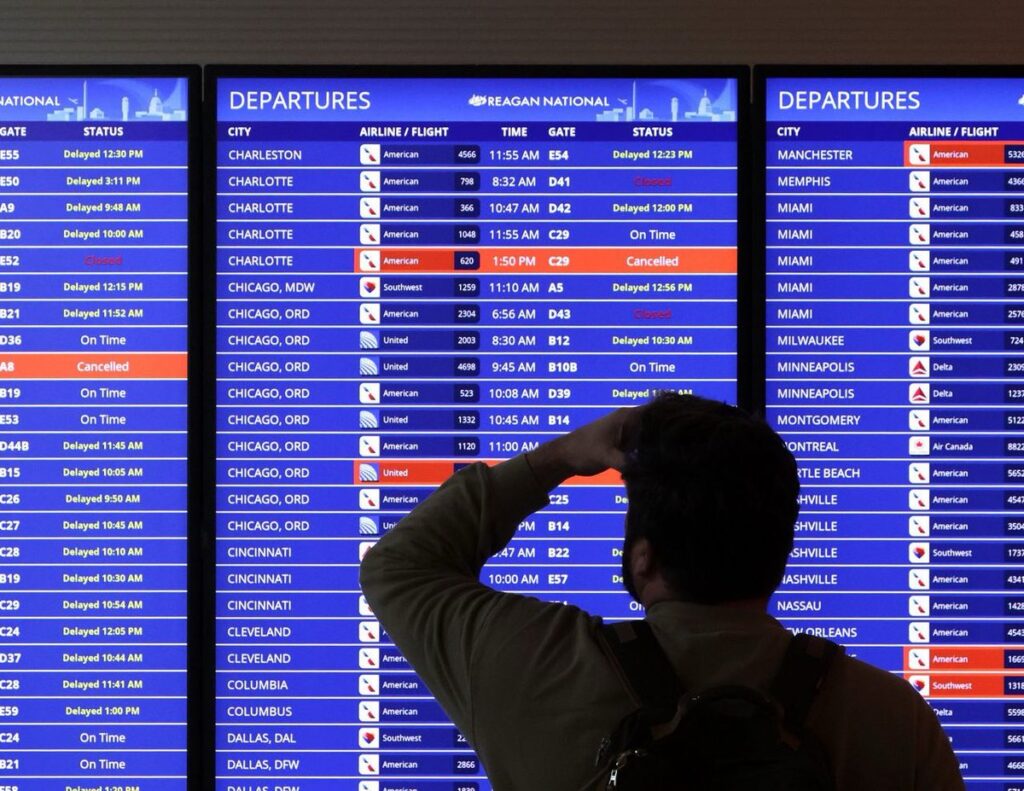
The global Microsoft outage, which caused global widespread disruption, has been labeled by cybersecurity experts as the largest IT disaster to date. The incident took thousands of Windows systems offline, with some critics blaming Crowdstrike, a U.S.-based cybersecurity firm employed by Microsoft, of sending travellers and businesses back to the stone age. This outage has highlighted concerns about the fragility of our global technology infrastructure.
IT experts told NSN it was one bad update pushed globally. Although they say it is unlikely that the outage happened because of a cyber attack, an NSN insider said, there is a slim chance of a supply chain attack, but described it as “very, very unlikely.”
However, he emphasised that Microsoft was not at fault.
The outage has led to long queues at airports with disruptions in health services, banks and business operations globally.
Hackmanac, a company that manages the world’s largest database of successful cyber attacks, posted a list of the disruptions on X.
In Australia, major media outlets, airlines, airports, supermarkets, banks, and retailers have been affected. Canada experienced a mobile app outage with TD Canada Trust. Belgium faced issues with train ticket purchases, media outlets, banks, post services, and airports.
France’s TV channels and systems for the 2024 Paris Olympics were impacted. In Croatia, the Central Health Information System and air traffic control were disrupted. Germany’s Berlin Airport, Lufthansa, and hospitals in Lübeck and Kiel reported issues. Hong Kong SAR saw disruptions at its international airport and with several airlines.
India’s airlines and IT firms like Oracle and Nokia were affected.
In Israel, emergency services, hospitals, postal services, banks, and pharmaceutical companies were impacted. Malaysia’s railway ticketing system experienced outages. The Netherlands reported problems at Schiphol airport, with KNAB bank, Transavia Airlines, and various government services and hospitals.
New Zealand’s banks, supermarkets, Auckland Transport, and Christchurch Airport faced disruptions. In the Philippines, banks, telecommunications, broadcasts, supermarkets, and Cebu Pacific flights were affected. South Korea’s Jeju Air and Singapore’s Changi Airport also reported issues. Spain’s ENAIRE’s Aena and Switzerland’s Zurich Airport faced problems.
The United Kingdom saw disruptions with Sky News, CBBC, airports, rail companies, NHS services, the London Stock Exchange, and Ladbrokes Coral.
In the United States, ground stops for major airlines and 911 service outages in several states were reported. The situation is evolving according to HackManac with countries like Italy and UAE experiencing severe disruptions as well. Consequently, shares of Microsoft and CrowdStrike have dropped due to the outage.
The failure also affected clients who pay wages weekly with Melanie Pizzey, the CEO of the Global Paylroll Association telling the Telegraph that they have been unable to access their payroll software due to the Microsoft outages. Pizzey indicated that it could have very serious implications for businesses across the United Kingdom, particularly for those who process pay roll on a weekly basis.
The cost of the outage is estimated to be billions of dollars.
CrowdStrike, a major player in endpoint security solutions, has acknowledged a defect in their system as the cause of the outages. They have assured that a fix has been found and deployed, ruling out cyber attacks as the cause.
The effect of the outage is so widespread because CrowdStrike is the largest endpoint solution provider globally. Approximately 70% of the world’s desktop computers run on Microsoft Windows.
Microsoft managed to complete what it called “mitigation actions” for Microsoft 365 apps and said services had recovered.
While CrowdStrike and Microsoft work to restore normality, the event serves as a stark reminder of how unprepared the world is for prolonged disruption during a cyber attack.

























































































































































































































































































